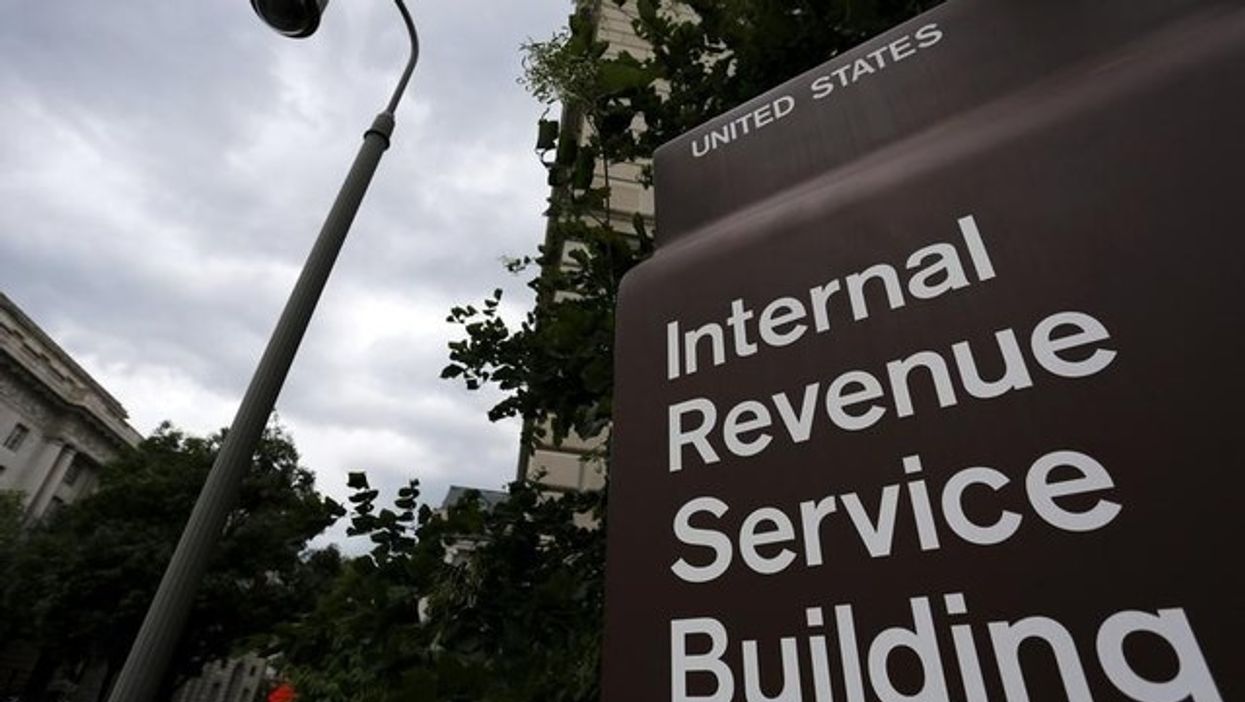After Crippling IRS, Republicans Find Ways To Worsen Tax Delays

After years of eroding the Internal Revenue Service's ability to enforce tax law through staff reductions, congressional Republicans are now complaining about the backlog of unprocessed tax returns and the lack of available customer support staff. But while their Democratic colleagues propose funding increases to solve the problem, the GOP lawmakers instead want to further restrict the agency's ability to do its job.
In February 10 letter, 30 Senate Republicans wrote to IRS Commissioner Charles Rettig and Treasury Secretary Janet Yellen to express their concern "about the existing delays and backlogs" facing the agency and "reports from taxpayers who cannot resolve their tax problems because the IRS is unresponsive." They noted the fact that the agency has a current backlog of about 8.3 million tax returns and that its customer service agents were able to answer only 11 percent of calls last year.
Those problems are real and the agency has acknowledged them. In recent years, Republicans have declared war on the IRS by significantly reducing the agency's staff and even proposing its elimination from the federal government.
Since winning control of the House in 2010, Republicans cut the agency's funding by 20 percent, which forced the agency to dramatically reduce its workforce. From 2010 to 2018, the number of IRS operations staff fell by 31 percent, and the number of IRS agents "with the expertise to conduct audits of complex returns" fell by 35 percent, according to the nonpartisan Center for Budget and Policy Priorities.
This reduced funding has made it harder for the agency to handle its basic functions of processing tax returns and enforcing tax law.
President Joe Biden and the Democratic majority in Congress have proposed increased funding for the agency so that it may hire more agents and modernize the technology it uses.
Every Republican in Congress opposed Biden's $1.75 trillion Build Back Better plan, which would have added roughly $79 billion in IRS funding over 10 years. While much of that money would have been focused on stepping up enforcement to catch wealthy tax cheats, billions would have gone to operations and taxpayer services.
"The framework will create a fairer tax system through transformation investments in the IRS: hiring enforcement agents who are trained to pursue wealthy evaders, modernizing outdated IRS technology, and investing in taxpayer service, so regular Americans can get their questions answered and access to the credits and benefits they are entitled to," the White House stated last fall.
Sen. Elizabeth Warren (D-MA) proposed a Restoring the IRS Act last May to increase the agency's funding by $31.5 billion. Not a single GOP senator has backed her legislation.
NPR reported on Monday that Democrats have also suggested increasing IRS funding in the 2022 budget, but that GOP lawmakers have called it a "poison pill" that would cause them to block the overall package if it is included.
Short-staffed and stuck with outdated technology, the tax agency says it is doing its best. It has suspended some collection letter mailings and set up "surge teams" from other parts of the agency to help process the backlogs.
But while no GOP lawmakers have offered solutions, some have tried to seize the moment to offer legislation that would further restrict the agency.
On Friday, Rep. Bruce Westerman (R-AR) announced legislation he called a bill "to end [the] IRS backlog." But his IRS PRIORITIES Act — co-sponsored by Reps. Tim Burchett (TN), Buddy Carter (GA), Louie Gohmert (TX), Bob Good (VA), French Hill (AR), Fred Keller (PA), Bob Latta (OH), David McKinley (WV), Mary Miller (IL), Mariannette Miller-Meeks (IA), Barry Moore (AL), and Glenn Thompson (PA) — would bar the agency from hiring any new enforcement staff until the backlog is eliminated.
This would do nothing to help the agency to handle the unprocessed returns and would hinder its ability to catch the wealthy tax cheats, who underpay what they owe by hundreds of billions of dollars each year.
In a February 7 column, Sen. John Boozman (R-AR) cited the crisis as an excuse to target the agency's unionized workers to use work time to assist colleagues with labor issues:
The taxpayer must be a priority, but many IRS employees are allowed to spend time on the clock completing tasks unrelated to their official duties, called Taxpayer-Funded Union Time. This policy needs to end. That’s why I support the IRS Customer Service Improvement Act so we can be sure IRS employees are fully devoted to fulfilling their mission to help Americans meet their tax responsibilities, rather than doing representational work, during tax season.
He and other GOP senators proposed that bill last June, baselessly suggesting that federal workers spending an average of a couple of hours per year dealing with union issues was a significant cause of the delays.
On February 8, Sen. Rick Scott (R-FL) filed a bill that would bar the IRS from ever using facial or fingerprint recognition technology — a move meant to help prevent identity fraud.
In a letter sent Thursday, Sen. Bob Menendez (D-NJ), Rep. Abigail Spanberger (D-VA), and dozens of other congressional Democrats wrote to the agency to ask for "immediate actions to reduce its massive backlog and improve its customer service during the 2022 tax filing season."
Reprinted with permission from American Independent








Trump Cabinet Nominee Withdraws Over (Sane) January 6 Comments